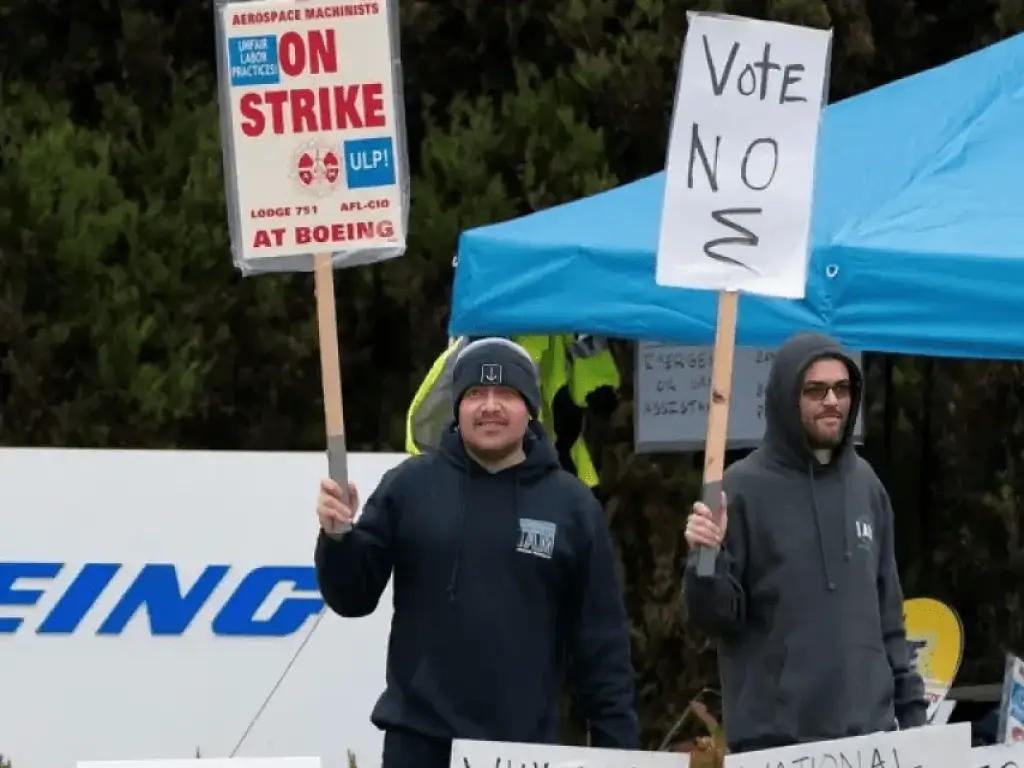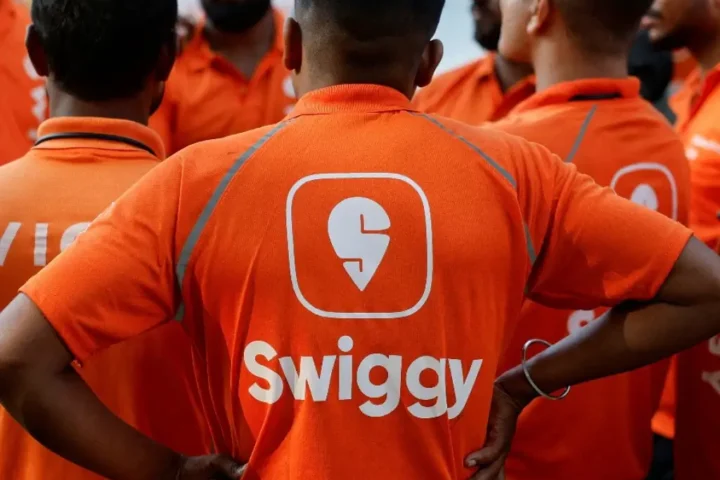Table of Contents
Workers at Boeing Company have refused another big pay rise for the fourth time, thus extending the current labor strike. Of the over 30,000 workers that Boeing manufactures, 64% rejected Boeing’s most recent offer of a 35 percent wage rise over four years. This is the second time the workers have rejected an offer; the previous rejection rate was 95% last month.
A Decade of Sacrifices
This backward-looking grievance is what led to the strike starting on the 13th of September; workers claim the latest offer does not make up for the past. Workers’ advisors also complained, some of them saying, “The fundamental point is that they must make up what we lost in the past decade.” The IAM also pointed out that this is the rejection of workplace democracy and signals the years of Boeing’s mistreatment.
However, Boeing employees are not just asking for more wages but rather better working conditions and packages. This has raised more pressure on the Boeing company, which faces severe financial and brand issues.
Growing Financial Losses at Boeing
Boeing is in serious operational trouble now, and it has predicted almost $6 billion in losses for this year. For instance, last quarter, the commercial aircraft business recorded a $4 billion loss, of equal measure in the defense line was $2.4 billion. The going-on strike, which is provoking a major production loss to the firm, is costing Boeing $100 million every day.
The fact that the company is at a crossroads has been echoed by Boeing’s new chief executive officer, Kelly Ortberg. Ortberg, who assumed the Boeing helm in August, has been busy trying to right the ship but was quick to remind those listening that it will be some time before Boeing gets back on its feet. “They say this is a big ship that will take some time to turn, but once it turns, it can be great again, he said.”
Striking Workers Demand Equal Treatment
To Boeing workers, the strike symbolizes an effort to claim their due with a focus on equality after years of wage and benefits’ cuts. One of the striking employees on the picket line responded to the billions of dollars in profit by saying, ‘We have seen the company make record profits while we had to contend with pay cuts and reduced benefits.’ This sentiment flows through the workforce, which continues to strive for improvement in terms and conditions of employment.
Supplier Consequences and Repercussions
Boeing’s strike has also affected other firms in the industry; its suppliers have not been spared either. One of the largest suppliers that manufactures aircraft bodies has already introduced a 21-day furlough for 700 employees because of losses caused by the strike. On the other hand, the company says that if the strike persists beyond next month, then there could be massive layoffs. Other suppliers are in the same similar situation, demonstrating how the aerospace industry is interconnected as well as the massive consequences of the walkout.
CEO Ortberg’s Ideas Toward Cultural Transformation
Ortberg has been very open about his vision for a cultural overhaul at Boeing; recently he said the company must merge its silos and fix itself from within. He has tried to emphasize the aim of bringing back the trust between the management and the employees, while there are quite several employees who have not regained their faith and require an array of changes to be made by the management.
Labor disputes are not the only issues that Boeing is facing. The company has had some safety issues, for instance, the mid-air blowout on one of the planes early this year. Its space division also faced problems that arose when the Starliner capsule had to be landed earlier than expected. While Boeing has faced all of these problems, it still has about 5,400 plane orders that offer a small hope for the future when the strike will be over.
Moreover, to resume production, the company will have to undertake drastic measures, as this did not happen easily. Ortberg recognized the challenges but continued, “It’s much harder to flip this on than it is to flip it off.” He insisted on the fact that the company’s return-to-work policy should be perfect.
Looking Ahead
The next steps will become decisive as Boeing tries to unlock this period marked by turbulence. An extended strike would only affect the company’s statistics and image, whereas fair terms will help to stabilize the workers. There is much to lose for both parties. Boeing has to stop the hemorrhaging of cash while on the other end of the bargaining table, workers cannot afford to come out empty-handed.
On the line for Boeing’s future.
Boeing is now facing its biggest gamble on record. Increasingly, the strikers are in a position where the company may lose its customer base due to delayed orders and declining production rates. However, other producers like Airbus saw this chance and could take the market share from Boeing and put more pressure on the company to end the strike. For Boeing to get back on its feet again, it needs to fix the labor problem as well as the fundamental working and organizational culture problems that have affected the company in the past few years.













